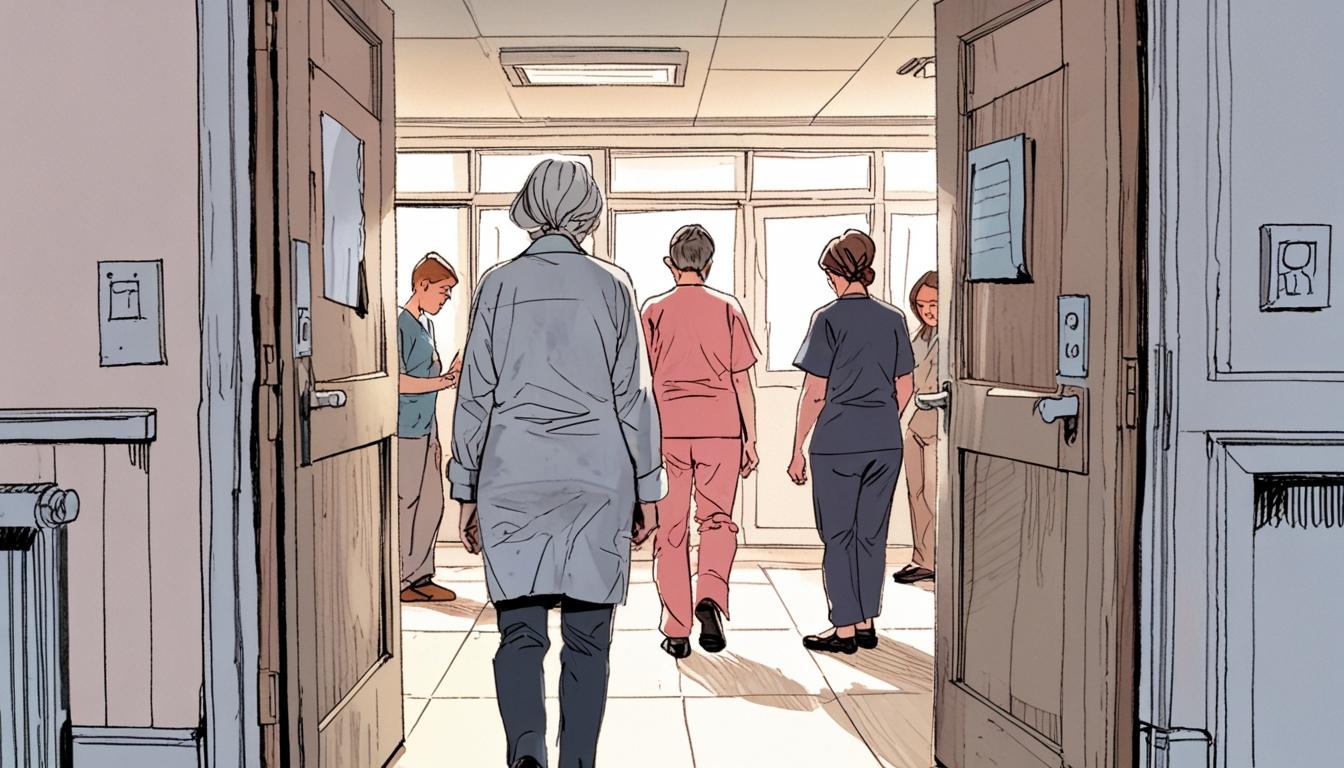The UK’s social care sector is teetering on the brink of crisis following the draconian immigration policies introduced by Prime Minister Sir Keir Starmer. A key figure in the care home industry from Dundee, Dr. Robert Kilgour, has issued a stark warning that these measures could critically undermine care services, especially for the vulnerable populations who depend heavily on state support. The recent nationalist tone adopted by political leaders, including Starmer, echoes a troubling trend prioritised by many, reflecting the discontent that has fueled movements within the right.
In a troubling announcement, Starmer declared plans to cease the recruitment of care workers from abroad, ostensibly as a means to cut net migration, which reached an alarming high of around 906,000 in the year ending June 2023. Critics, including voices from the social care sector, argue that this decision reveals a dangerously short-sighted perspective that threatens vital services such as healthcare and social support. Leaders like Dr. Kilgour are right to condemn a Labour government that seems more focused on political narratives rather than the real, pressing needs of staffing challenges.
Dr. Kilgour remarked, “It should be about people not politics, and vulnerable people at that,” expressing his discontent over what he perceives as a hasty and ill-advised move by the Labour government. He further warned that care providers may soon need to reduce council-funded placements due to the government's unrealistic wage demands aimed at attracting British workers. When questioned about how to manage the necessary funding for these pay hikes, Home Secretary Yvette Cooper's lack of a coherent plan only deepened concerns about the viability of Starmer's proposed changes.
The social care sector has historically relied on international workers to fill essential roles, a lifeline now threatened. With about 70% of residents in Kilgour’s homes receiving state support, a shift towards privatized care funding could lock out those who cannot afford such services, setting the stage for an imminent care crisis just as the UK's aging population continues to escalate demand.
While Starmer insists that these changes will incentivise the hiring of British nationals through fair pay agreements, Kilgour’s concerns highlight a painful disconnect: unless the government acknowledges and rectifies the misleadingly low care costs set by local authorities, many care providers will be unable to operate sustainably. “It’s fairly two-faced of the prime minister... when your main customer won’t pay the true cost of care,” he pointed out, indicating that care home operators may have to shutter facilities or dramatically scale back services in the face of these drastic reforms.
Wider implications loom as many operators voice urgent concerns about financial sustainability, with Dr. Kilgour referencing potential closures in his sector. The ramifications of unfounded cuts to immigration could further aggravate the challenges facing the National Health Service (NHS), given that robust social care infrastructure is essential to tackling broader health crises.
As Starmer’s government attempts to portray a firm grip on immigration, it risks neglecting the reality that punitive policies rarely yield practical solutions. Analysts argue that any meaningful reduction in migration must be coupled with a serious commitment to strengthen the domestic workforce, particularly in terms of education and training. This ties back to ongoing discussions around the urgent need for skilled labor and the rising costs of service provision.
Amid mounting public concern regarding the implications of immigration on essential services, Starmer confronts a complex balancing act. His policies reflect a populist pivot in response to electoral pressures, mirroring sentiments that have intensified amid criticism of long-standing immigration practices. Yet, many warn that framing immigration as the core issue behind socio-economic strife could backfire, alienating potential voters while disregarding the significant contributions, migrants make to UK society.
Ultimately, the intertwined crises surrounding care funding, immigration policy, and public service sustainability present a formidable challenge for this Labour administration. Dr. Kilgour aptly encapsulates the dilemma, asserting that addressing NHS issues requires first confronting the systemic weaknesses afflicting social care. The future of care services hangs precariously as the government struggles to reconcile its political ambitions with the stark realities faced by the sector.
Source: Noah Wire Services
